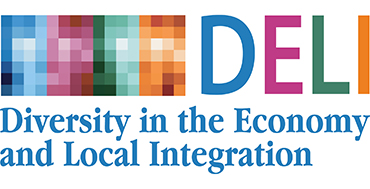 Businesses owned by migrants and ethnic minorities have a significant impact on economic growth in Europe. At present there are roughly 24 million non-nationals living in the member states of the European Union, many of them from ethnic minority populations. Their businesses - mainly small and micro enterprises - play an important role in the European society and in particular in urban areas.
Businesses owned by migrants and ethnic minorities have a significant impact on economic growth in Europe. At present there are roughly 24 million non-nationals living in the member states of the European Union, many of them from ethnic minority populations. Their businesses - mainly small and micro enterprises - play an important role in the European society and in particular in urban areas.
However, migrants often face legal and socioeconomic difficulties in accessing the mainstream economy. Today European migrant businesses are mainly micro-businesses, smaller in comparison with indigenous businesses as regards turnover and profit. Although migrants have higher business creation rates than the rest of the population, they fail more due to a lack of information, knowledge and language skills (OECD (2010), "Entrepreneurship and Migrants"). Furthermore, support measures for SMEs remain unbalanced, with a substantial number of EU countries still failing to take into account the characteristics of migrant-owned businesses, when designing policies and laws. Moreover, often these businesses experience structural barriers in becoming suppliers for mainstream businesses. The challenge for public authorities is to create an environment that actively encourages the development of migrant entrepreneurship and supports their inclusion into local economies. The EC Communication (2012) Entrepreneurship Action Plan 2020 explicitly recommends the member states to propose policy initiatives to attract migrant entrepreneurs & facilitate entrepreneurship among migrants, using the best practices developed locally; remove legal obstacles to establishment of businesses by migrants; and to facilitate their access to information and networking.
The Council of Europe in partnership with Migration Policy Group, proposes to follow up to these recommendations by setting up local platforms that will benefit from both the knowledge base developed in the framework of Intercultural Cities (CoE) programme and Supplier Diversity project (MPG). The project DELI rests on the premise that successful shift to an inclusive and participatory society will require a distinct way of decision-making to negotiate disagreements, build trust among stakeholders and foster a long-term common vision. A major challenge in integration field is cross-sectoral integrated planning and achieving multi-stakeholder consensus for collaborative projects. DELI will help cities develop a flexible public-private dialogue framework that will negotiate and drive policies supporting migrant entrepreneurship and development of migrant-owned SMEs. It offers methods to identify and map key sectors and stakeholders to participate in the integration process, and provides practical guidance and toolkits intended to support cities in creating opportunities for migrants in the private and public sector.
DELI involves a city-driven, multi-stakeholder and multi-sectoral five-step process that identifies, assesses and prioritizes opportunities and trade-offs ( "supplier diversity" and "responsible business"), as well as appropriate public and private financial mechanisms (diversity procurement strategies). The process culminates in establishing policy road maps for cities that will support migrants' economic integration.

Round tables
Contacts
Lilia Kolombet
CoE Project Manager
 +33 390 21 53 85
+33 390 21 53 85
 +32 22 35 05 05 (Brussels)
+32 22 35 05 05 (Brussels)
Daria Cherepanova
CoE Project assistant
 +33 390 21 58 99
+33 390 21 58 99
Jan Niessen
Migration Policy Group
Director
 +32 2 230 59 30
+32 2 230 59 30
Alex Kirchberger
Migration Policy Group
Researcher
Beth Ginsburg
Migration Policy Group
Researcher










